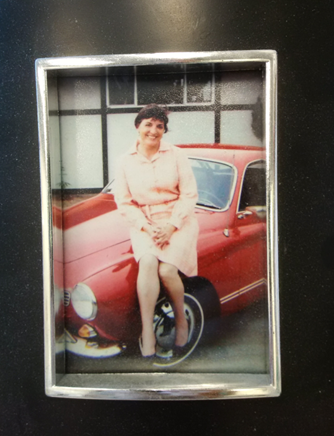It's been a big news week for icons: The People's Pope arrived for his historic tour of the Eastern seaboard. Yogi Berra departed the stage, leaving us hungry for more of his cheeky wisdom. And now the death of Volkswagen -- German for the "People's Car." For Baby Boomers like me, this one hurts.
It's hard to fathom VW could go this far wrong. The other massive auto recalls of the decade pale in comparison. This is not a failure of quality control (Toyota) and it goes beyond cover up (GM). Secret on-board software designed to skirt emissions testing? We are talking about an intentional act of subterfuge. The consequences are now borne by 11 million customers who purchased their Jettas and Golfs with the confidence -- now undermined -- they were meeting the highest standard possible for low carbon emissions.
In a heart-beat, the image of the car company I learned to love as an adolescent - through the irreverent, cleanly elegant "Small is Beautiful" ads of the 1960s (and the VW repair class where I replaced my own fan belt) -- has been horribly tarnished, maybe beyond repair.
The last decade has been wicked-bad for the public's trust in business. We have become accustomed to companies saying one thing and doing another. But Volkswagen has played loose with the very values it taught us to embrace. We thought environmental consciousness defined VW ownership -- that it was a bedrock value for the corporation. Volkswagen not only celebrated small is beautiful through unique product design -- through sleek ads and TV commercials they made it cool to be green. And now we learn that all of that was window-dressing. We are left cynical and maybe a little sad.
This fall from grace by one of the largest automakers on the planet will likely become a business school case taught for decades to come. But what lessons will the Volkswagen case teach?
One clue can be found in a "goals" statement published in 2013. "The [VW] Group's goal is to offer attractive, safe and environmentally sound vehicles which can compete in an increasingly tough market and set world standards in their respective class."
We will learn more in time, but a core lesson might be the following: that the real values of a company are revealed in the decision rules and protocols used in the R&D department and manufacturing plants. Let's teach that "Quality" is a dynamic idea shaped by what the company measures first and foremost; and finally, that the real purpose of the company, as Peter Drucker taught, has to be service to the customer -- and that consumers do not stop being consumers when they leave the Showroom.
The first part of the Volkswagen goals statement says one thing. Attractive? Check. Safe and environmentally sound? Yup. The last clause is where things get complicated -- where environmental values meet the road test of complex consumer expectations and market realities -- where real people come into the equation. To become the biggest car company and stay on the forefront of competition may conflict with the goal of producing economical and environmentally advanced vehicles. To become the richest car company, you need to create a driving experience that appeals to a broader segment of the market than the environmentally sensitive consumer. You need to compete with the cars in the fast lane.
This is where the rest of us come into the picture. I grew up in a VW family. In between our first "V-Dub" -- a '58 Bug, picked up at the factory in Wolfsburg, and the family favorite, a snazzy red '68 Karmann Ghia pictured here with Mom on the hood, were another Bug, a Super Beetle and a Hatchback. It was easier then; we could be cool as well as economical and practical. Our consumer culture has matured and today we exist in a confusion of values -- we want to be green, and still have a fast car, comfort, bling.
It is Volkswagen's great misfortune that this story is playing out against the backdrop of the Pope's visit to the U.S. and the national conversation he aims to provoke on climate change. The Pope is working to clarify what matters most. We need our leaders -- both in government and in business -- which he terms "a noble profession" -- to set the tone. VW is confused. It has no clue what matters most -- or what kind of company it wants to be.
The Pope also talked about self-sacrifice, and how we will be measured: "The yardstick we use for others is the yardstick that time will use for us."
The Pope also talked about self-sacrifice, and how we will be measured: "The yardstick we use for others is the yardstick that time will use for us."
To leave this issue at the door of Volkswagen may side step an even bigger message to We-the-People. We can't have it all. We can't drive our kids to school in a Hummer and still be green. We can't embrace fuel economy and low carbon emissions and expect the car to drive like a Ferrari. Let's hope we can learn from this moment.
